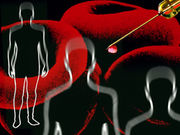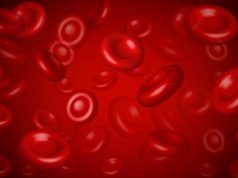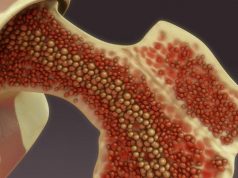Findings inconsistent, imprecise for benefits/risks of antiplatelet tx; no extractable data on anticoagulants
WEDNESDAY, June 28, 2017 (HealthDay News) — For patients with essential thrombocythemia (ET), the evidence relating to risks and benefits of antithrombotic therapy is lacking, according to a review published online June 27 in the Annals of Internal Medicine.
Derek K. Chu, M.D., Ph.D., from McMaster University in Hamilton, Canada, and colleagues examined the risks and benefits of antithrombotic therapy in adults with ET using data from 24 observational studies involving 6,153 patients followed for 31,711 patient-years. The team noted the following limitations: no randomized trials, no extractable data on anticoagulants, lack of uniform bleeding definitions, and little systematic reporting of outcomes.
The researchers found that 80 percent of patients receiving antiplatelet therapy received low-dose aspirin and 20 percent received high-dose aspirin, dipyridamole, or other agents. Inconsistent and imprecise findings were observed. Per 1,000 patient-years, the reported incidence rates of thrombosis, any bleeding, and major bleeding without antiplatelet therapy varied from 5 to 110, 3 to 39, and 2 to 53 cases, respectively. With antiplatelet therapy versus none, the reported relative risks for thrombosis, any bleeding, and major bleeding ranged from 0.26 to 3.48, 0.48 to 11.04, and 0.48 to 5.17, respectively. For all outcomes, the certainty of evidence was rated as low or very low.
“Adequately powered randomized trials are needed to clarify the net clinical benefit of antithrombotic therapy in ET and the subgroups that will derive the most benefit,” the authors conclude.
Several authors disclosed financial ties to the pharmaceutical industry.
Abstract/Full Text (subscription or payment may be required)
Editorial (subscription or payment may be required)
Copyright © 2017 HealthDay. All rights reserved.








